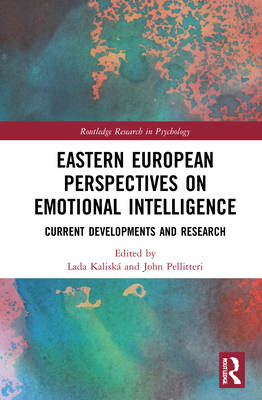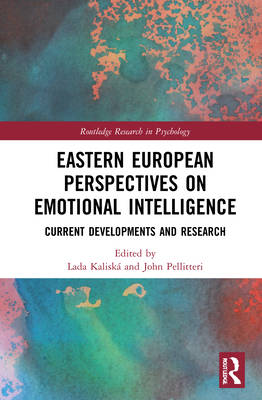
- Retrait gratuit dans votre magasin Club
- 7.000.000 titres dans notre catalogue
- Payer en toute sécurité
- Toujours un magasin près de chez vous
- Retrait gratuit dans votre magasin Club
- 7.000.0000 titres dans notre catalogue
- Payer en toute sécurité
- Toujours un magasin près de chez vous
Eastern European Perspectives on Emotional Intelligence
Current Developments and Research
Description
This book offers a unique perspective on Emotional Intelligence (EI) research in Eastern Europe, analyzing current trends in the research and application of EI in a region with a distinct socio-political history.
Bringing together leading researchers from seven countries, namely Bulgaria, Croatia, Lithuania, Serbia, Slovakia, Poland, and Russia, chapters within this edited volume present original research that illustrates both the etic and emic aspects of emotions, to discuss how EI research can address psychosocial challenges across different societies. Using a selection of cross-cultural frameworks for comparison, contributors to the volume make important developments to the field of EI research by instating a cultural and regional adaptation of EI theories. This includes considerations of EI from a collectivistic perspective as well as the relevance of creating psychological measurement tools that reflect and represent the cultural and linguistic nuances in the adaptive use of emotional information.
Eastern European Perspectives on Emotional Intelligence will prove a valuable resource for academics, researchers, and students of cultural and social psychology, or particularly for those seeking to expand their conceptual understanding of EI.
Spécifications
Parties prenantes
- Editeur:
Contenu
- Nombre de pages :
- 272
- Langue:
- Anglais
- Collection :
Caractéristiques
- EAN:
- 9780367673208
- Date de parution :
- 23-02-21
- Format:
- Livre relié
- Format numérique:
- Genaaid
- Dimensions :
- 155 mm x 236 mm
- Poids :
- 498 g

Les avis
Nous publions uniquement les avis qui respectent les conditions requises. Consultez nos conditions pour les avis.





